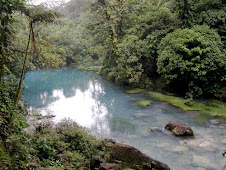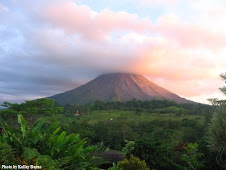This probably won't be a difficult one for English speakers to remember. Elevador is the popular word in Costa Rica for 'elevator'. While some Costa Ricans will understand acensor, just stick to elevador. It's the only word I have ever encountered for elevator.
With this said, elevators aren't too widespread in Costa Rica. San José is the only place where they're common. I even remember staying in a five-story hotel in Ciudad Quesada de San Carlos without an elevator.
Tuesday, May 26, 2009
Monday, May 25, 2009
Word of the Day: Tortillera
Tortillera is Costa Rican slang for 'lesbian'. Because of the connotation of the word, people usually avoid using it to describe a woman who makes tortillas.
It isn't widely considered offensive in Costa Rica, although perhaps it should. Reason being: the words 'playo' and 'tortillera' (used for 'gay' and 'lesbian', respectively) are so commonplace in Costa Rican language that they are often used generically for homosexual people. As a result, people don't necessarily mean harm when they use the terms. However, homosexuality isn't always seen in a positive light in what is a strongly Christian (Catholic, and increasingly Evangelical) country, so playo and tortillera are often used in a negative fashion.
With that said, people will figure out for themselves what is offensive and what isn't. I have met gay people in Costa Rica who use the words playo and tortillera in a joking manner. Others might not find it so funny, so I don't recommend using these words.
It isn't widely considered offensive in Costa Rica, although perhaps it should. Reason being: the words 'playo' and 'tortillera' (used for 'gay' and 'lesbian', respectively) are so commonplace in Costa Rican language that they are often used generically for homosexual people. As a result, people don't necessarily mean harm when they use the terms. However, homosexuality isn't always seen in a positive light in what is a strongly Christian (Catholic, and increasingly Evangelical) country, so playo and tortillera are often used in a negative fashion.
With that said, people will figure out for themselves what is offensive and what isn't. I have met gay people in Costa Rica who use the words playo and tortillera in a joking manner. Others might not find it so funny, so I don't recommend using these words.
Sunday, May 24, 2009
Word of the Day: Naciente
Naciente is correctly used as the cognate of the English adjective "nascent".
In Costa Rica the word takes on a different meaning as a noun, referring to a natural spring that creates a small current of fresh, drinkable water. Much of the potable water in outside of San José comes from natural sources. While hiking through forests in the Costa Rican countryside I have often found nacientes. They serve as a good source of drinking water, especially when you haven't brought along enough of your own.
The Real Academia Española recognizes the noun naciente as a dinsticntly Costa Rican word. The Academy describes the gender of this noun as "ambiguous", but I have most often heard naciente preceded by feminine articles.
In Costa Rica the word takes on a different meaning as a noun, referring to a natural spring that creates a small current of fresh, drinkable water. Much of the potable water in outside of San José comes from natural sources. While hiking through forests in the Costa Rican countryside I have often found nacientes. They serve as a good source of drinking water, especially when you haven't brought along enough of your own.
The Real Academia Española recognizes the noun naciente as a dinsticntly Costa Rican word. The Academy describes the gender of this noun as "ambiguous", but I have most often heard naciente preceded by feminine articles.
Subscribe to:
Posts (Atom)


